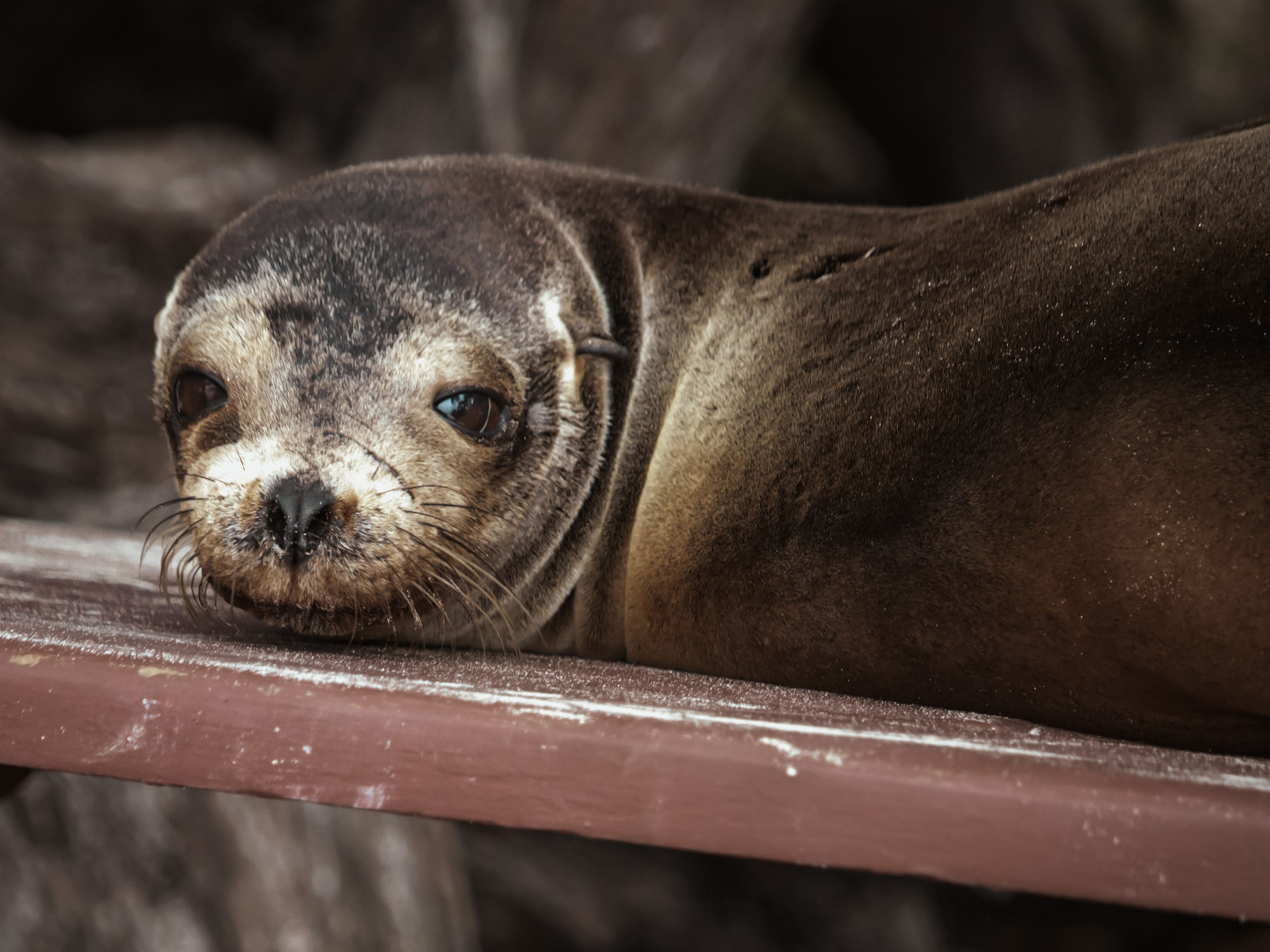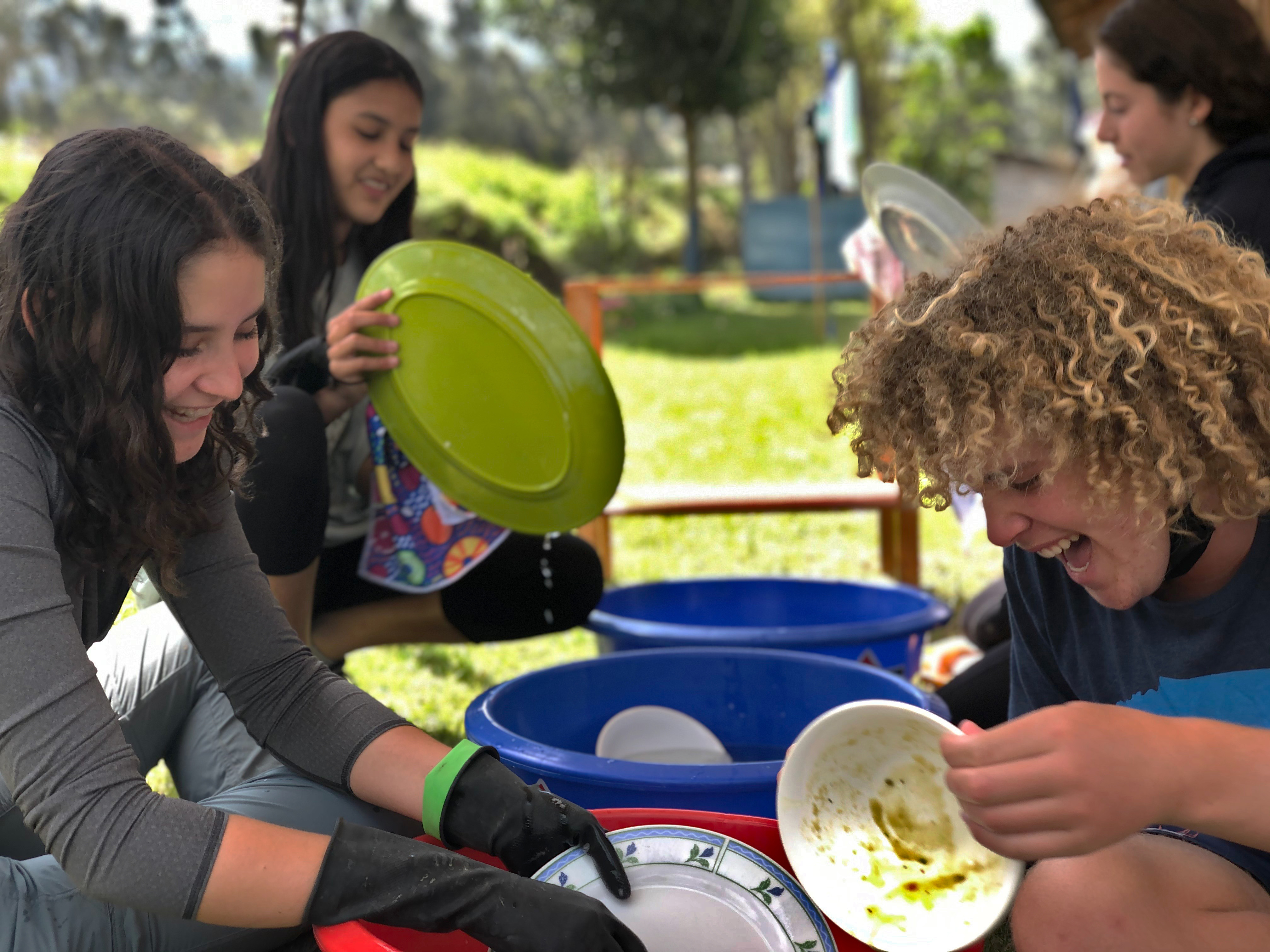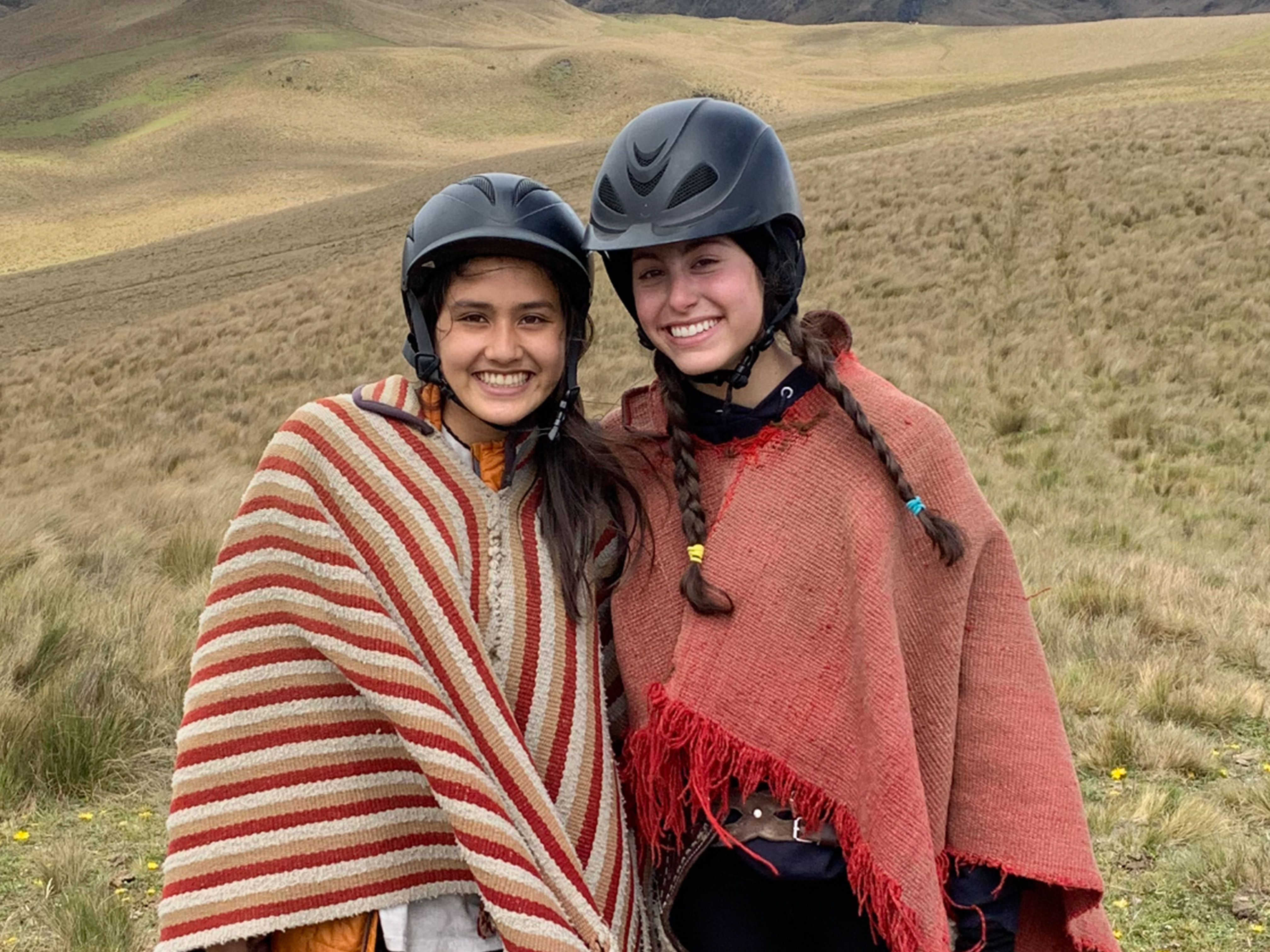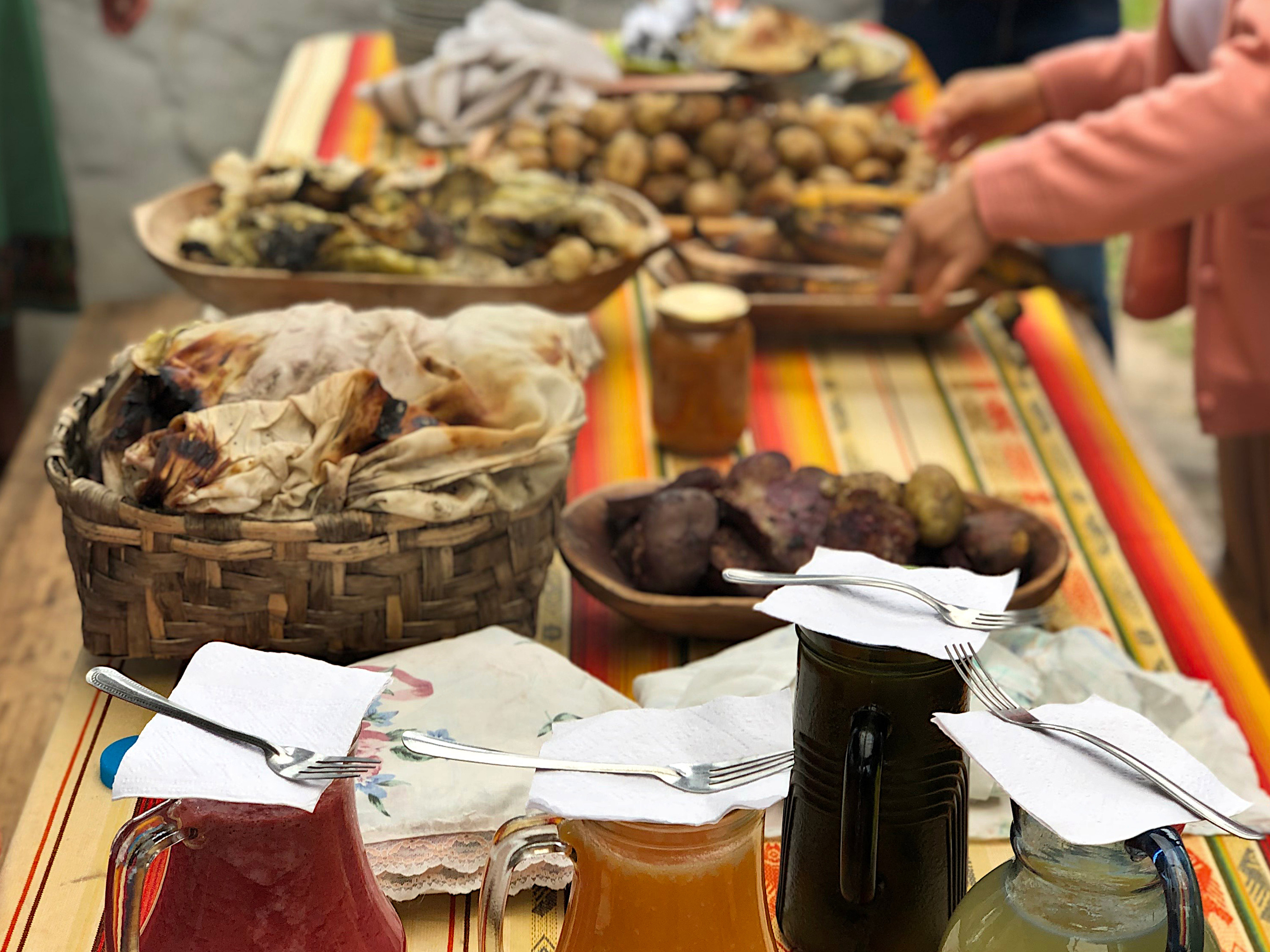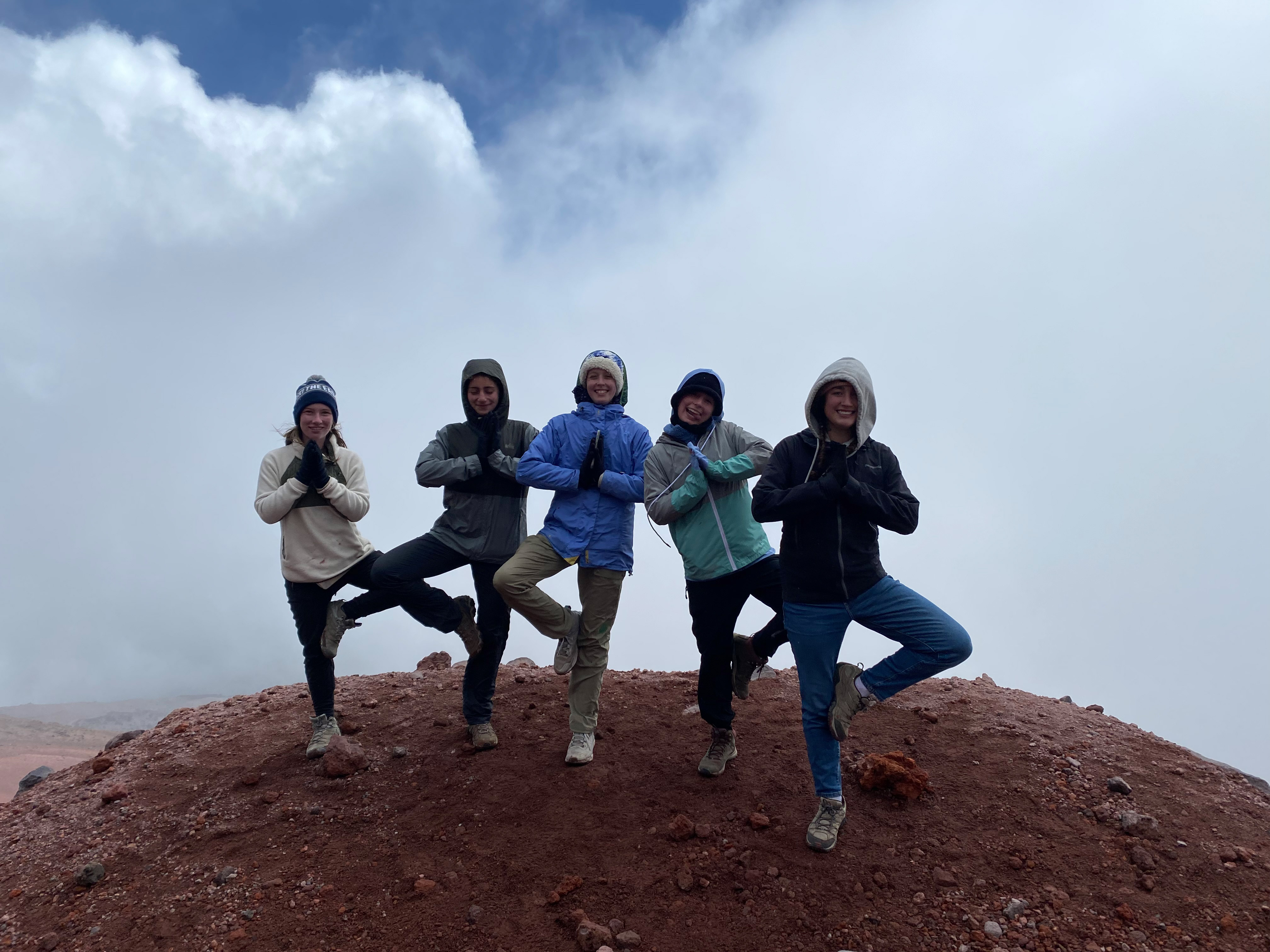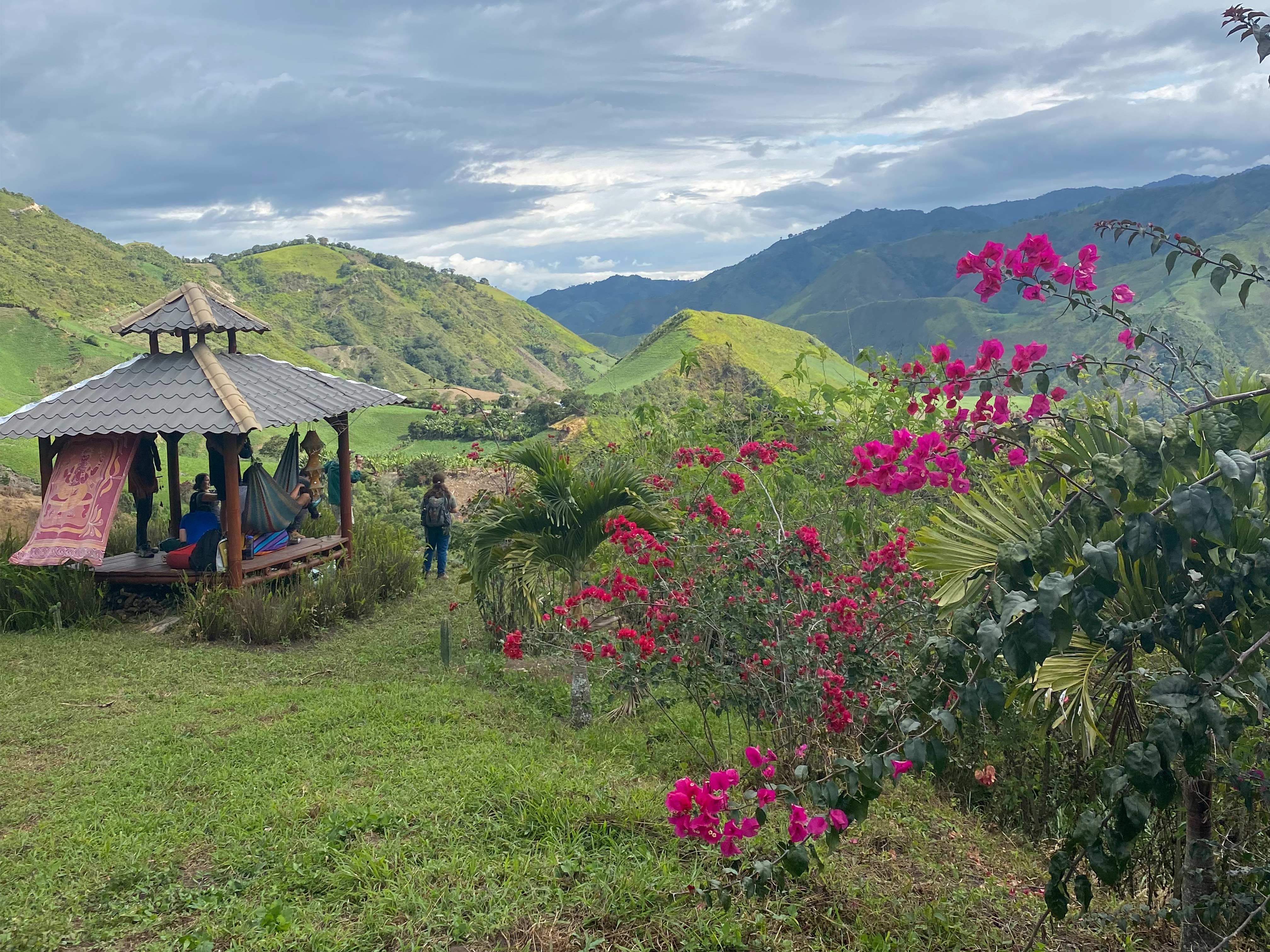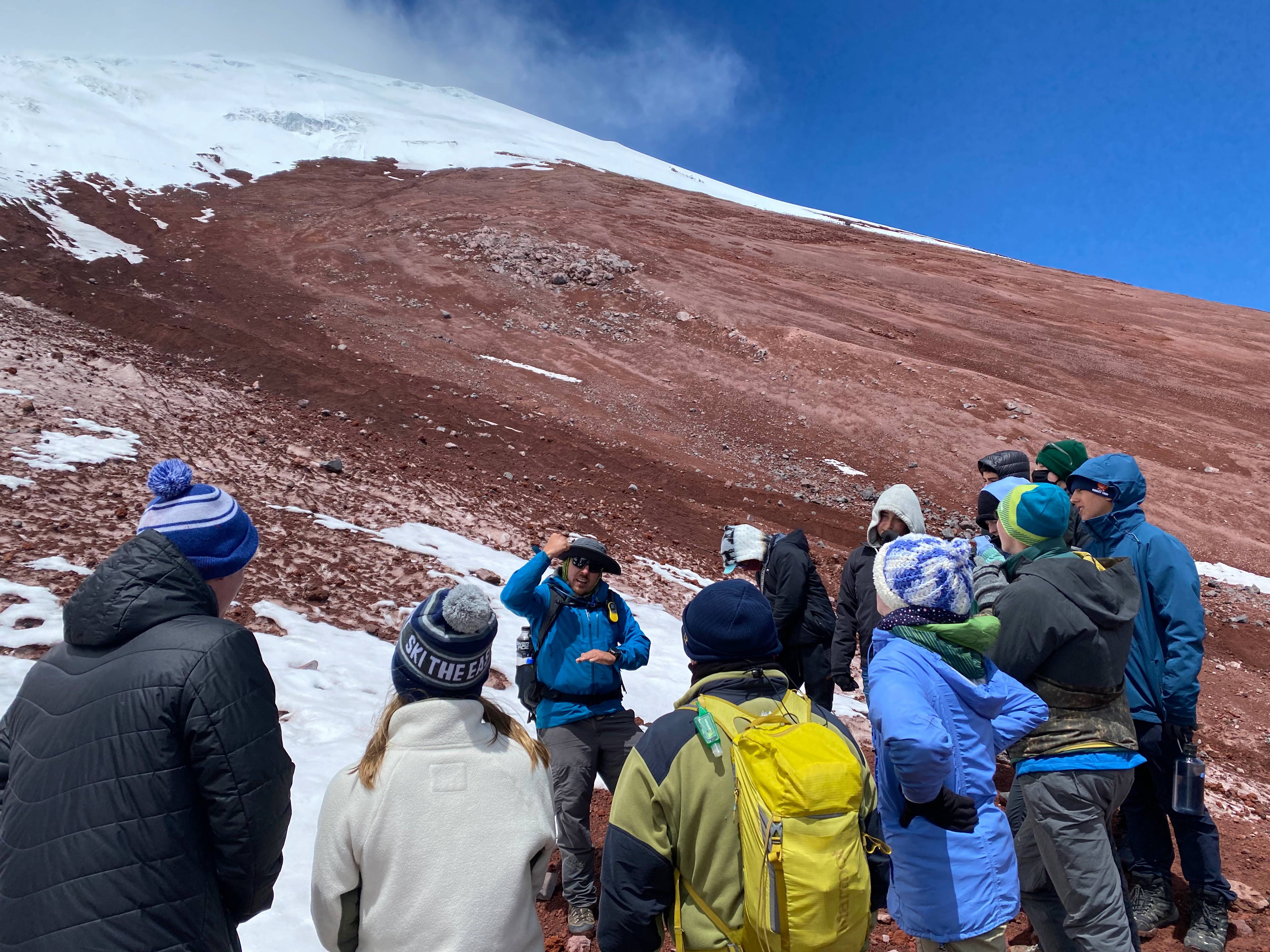Smithsonian Student Travel | Ecuador & the Galápagos
Highlights
-
Ride the teleférico and take in vistas of Quito and the stunning Andes
-
Join artisans to learn how traditional crafts can generate economic growth
-
Get up close with giant tortoises at the Charles Darwin Research Station
-
Observe sea turtles and Galápagos penguins in their natural habitat
Itinerary
This itinerary represents our plan for the program. However, we may implement changes if we identify opportunities to improve the experience, to take advantage of unexpected events, or to accommodate local schedule changes.
Departure • Travel Day • Meet your student travel group and one of your trip leaders in Miami, Florida, and fly together to Quito, Ecuador.
Quito • 2 days • Settle into our comfortable residence in Quito’s historic center, and get to know your leaders and fellow students. Pay a visit to the Museo de la Ciudad to get an introduction to Quito’s ancient societies and its relationship with colonial Spain, then ride the teleférico up the Pichincha volcano. Participate in an in-depth program orientation to prepare for your journey.
Ibarra • 1 day • Travel north to the outskirts of Ibarra and stay at a colonial-era hacienda nestled in the highlands. Sample traditional Andean meals, hike to a vista of Volcan Imbabura, and chat by the fire with your host, whose family has owned the hacienda for generations. Hike up the road to an Indigenous community and learn about Andean cosmovision and medicinal plants during a visit with a local shaman. Head to the bustling open-air Otavalo market and stargaze from the hacienda’s grounds at night.
Cloud Forest • 2 days • Traverse the Andes and descend into the verdant cloud forest of the Intag Valley. Join a workshop with a women-led artisan collective of weavers, hike to nearby waterfalls, and visit a coffee farm to learn about coffee production from bean to cup. Meet with the leaders of a nearby NGO working to protect the biodiversity of the region and learn about the complicated history of controversial mining projects. Swim in geothermal hot springs and tell stories by a rushing river that cuts through the valley.
Quito • 1 day • Return to Quito for one night before a morning flight to the Galápagos Islands.
Isabela, Galápagos Islands • 3 days • Fly from Quito to Baltra Island and transfer by boat to the island of Isabela, the largest island in the Galápagos archipelago. Meet your Smithsonian Student Travel Expert who will share their insights into the unique wildlife and ecology that make the Galápagos such a special place. Climb to the crater of an active volcano and explore the incredible landscape formed by recent lava flows on the Sierra Negra Volcano. Visit the Breeding Center of the Giant Tortoise and kayak, snorkel, and explore with your group. Peer into a coastal canal for up-close views of sharks and go tide pooling to spot fire-red Sally Lightfoot crabs sunning on the rocks alongside spiky marine iguanas.
Santa Cruz, Galápagos Islands • 1 day • Transfer by boat to Santa Cruz island and head to the Charles Darwin Research Station to learn about scientists’ work in protecting the islands’ iconic giant tortoises and their efforts to reintroduce them into the wild. Hike in the highlands, then descend into cavernous lava tubes. Surround yourself with marine iguanas on Tortuga Bay’s stunning white sand beach.
San Cristóbal, Galápagos Islands • 3 days • Set out by boat for San Cristóbal Island. Get an introduction to the islands’ biology, geology, and human history at the Interpretation Center, then enjoy a downhill bicycle ride from the highlands to the coast. Snorkel at Leon Dormido, also known as Kicker Rock, the remnant of an underwater volcano, and observe the multitudes of tropical fish, manta rays, sea turtles, and Galápagos sharks beneath the surface.
Quito • 1 day • Fly with your group from the Galápagos to Quito, and prepare to travel home.
Return • Travel Day • Fly from Quito to Miami with your group and a leader, then continue on to your final destination.
Smithsonian Student Travel Experts
The experts highlighted below are examples of professionals that will join the group at various points throughout the itinerary to add their expertise and insight to the program theme.
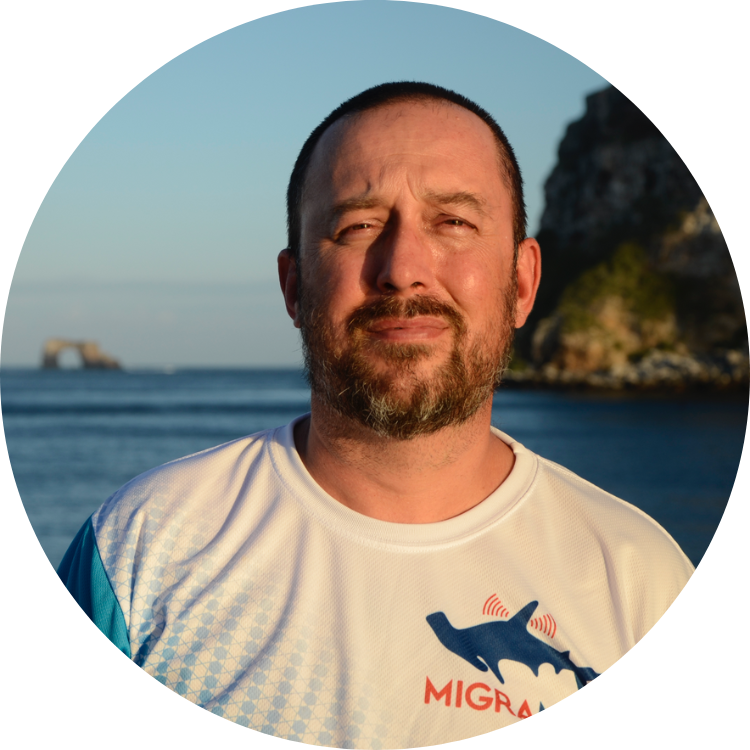
Alex Hearn, Ecologist
Alex Hearn is a marine fisheries ecologist with 20 years of experience working in Galápagos. He is Professor and Researcher at the Universidad San Francisco de Quito (USFQ) and the Galapagos Science Center since 2015. He obtained his BSc in Oceanography and Marine Biology from the University of Southampton, UK; and his MSc and PhD from Heriot-Watt University in the Orkney Islands. He has worked in the Galápagos Islands since 2002 on fisheries research and management, and spearheaded the development of the Shark Research Program since 2006. He is a founding member and current Board President of the regional research network, MigraMar. Alex was made co-champion of the Mission Blue Galápagos Hope Spot in 2020.
His current projects include using acoustic and satellite telemetry to establish the migratory pathways of sharks, evaluating the movement ecology of the pelagic assemblage around oceanic islets, and monitoring shark nursery grounds. Alex has published over 60 peer review research articles and over a dozen book chapters. He recently led the multi-institutional team of biologists to develop a blueprint for improved conservation.
Alex will be joining the June 25 departure of the Ecuador & the Galápagos program.
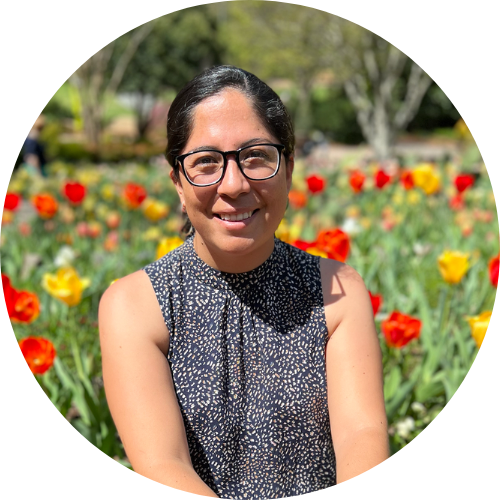
Diana Pazmiño, Marine Biologist
Diana is a marine biologist born and raised in the Galápagos islands, passionate about
conservation and education. She obtained her undergraduate degree of Biology in Pontificia
Universidad Católica del Ecuador in Quito (PUCE) and moved to Australia for her PhD. These
experiences broaden her professional and personal perspectives about women in STEM and
inspired her to encourage women participation in science. After coming back to Galápagos in
2017, she joined the Universidad San Francisco de Quito (USFQ) and the Galápagos Science
Center (GSC) to develop several research and community engagement projects. Diana is aware
of the disconnection between the local population and researchers, and the negative impacts
over long term conservation goals. She is convinced joining efforts at regional and global scale
is key to move forward and achieve permanent solutions.
Her projects include long term monitoring of rays (and manta rays) in the Galápagos islands, as
well as the use of molecular tools to inform conservation and tackle illegal activities. Diana is
currently building a genetic database for the diversity of the Galápagos through barcoding and
metabarcoding techniques, while supporting local capacity building and community
participation.
Diana will be joining the July 12 departure of the Ecuador & the Galápagos program.
What to Expect
Altitude • This program visits high altitude. We spend several nights in Quito, which is at an elevation of 9,350 feet above sea level.
Accommodations • During most of the program, we stay in ecolodges and family-run inns where students sleep in beds, have hot showers, and share a room with other students in the group. Leaders reside together with the students throughout the program.
Climate • July temperatures in Ecuador are moderate, reaching 60–70°F when the sun is out, and cooling off substantially at night. Although the Galápagos Islands are located on the Equator, the cool Humboldt Current makes the ocean water quite chilly year round.
Meals • We begin each day with breakfast at our residence, and enjoy lunches and dinners at small, local restaurants and cafes, and we occasionally hit the markets to shop for a picnic lunch.
Cuisine • Ecuador is known for its variety of exotic fruits and fresh juices, an abundance of potato varieties and other root vegetables, delicious seafood, and flavorful soups. Seafood is a popular staple in the Galápagos Islands.
Language • Spanish is Ecuador’s official tongue and is widely spoken, but ten indigenous languages are also spoken throughout the country.
Enroll in two programs & save $500!
$300 tuition discount + no second application fee

